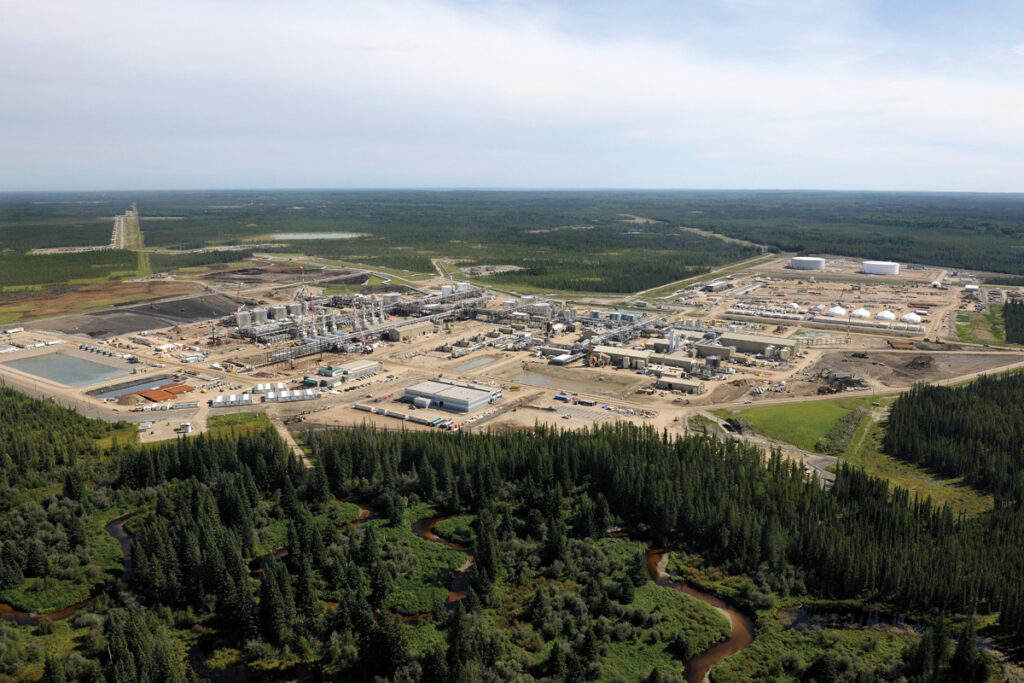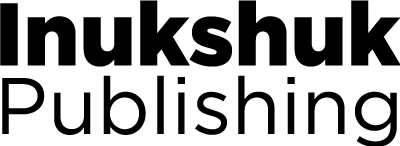Power to the People
Oil & Gas Cash Fuels Business for the Cold Lake and Samson Cree First Nation

When James Blackman co-founded what would become the Primco Dene Group of Companies in 1999, his community was in dire straits. Blackman is from the Cold Lake First Nation, a Dene community of 2,500 whose reserve lands are near the town of Cold Lake, in northeastern Alberta. There was little private enterprise, few opportunities for employment, and few revenue streams for the band council.
Blackman was a 25-year-old band councillor at the time, having first been elected three years earlier. Together with the rest of the council, the community’s economic development officer and others, Blackman incorporated Primco Dene. The goal was to offer support services to the oil and gas companies that were operating in and around Cold Lake, and to employ his neighbours in doing so.
The seed money for Primco Dene came not from the band and not from government, but from a private sector oil and gas company called Alberta Energy Corporation. AEC went on to become Encana and is now Cenovus. AEC extended a loan to Primco Dene so it could buy trucks and hire people. “AEC was instrumental in working with us,” Blackman says. “We paid back that seed money within the first year and before we knew it we were on our own.”
The company started small, with just three employees. It began offering medical, catering and security services to the many remote camps and operations that were popping up around Cold Lake.
“They were humble beginnings,” Blackman says, “but we started to dig in our heels.”
Primco Dene hired and expanded, and the business steadily grew. Janitorial services were added, and rentals and safety services. Within a few years, Primco Dene had grown to the point that Blackman, then in his third term as councillor, resigned to focus on the business. That’s when things really took off.
Blackman remains with Primco Dene as its President and CEO, and the group of companies is now a powerhouse employer and revenue generator in the Cold Lake region and beyond. The 12 companies that make up Primco Dene peaked at 800 employees a few years back. A sister company, Seven Lakes Oilfield Services, had more than 1,000 employees at one point. And the companies hire local. Primco Dene currently hires people from 71 Indigenous communities and Seven Lakes from 56. Primco Dene has 350 Indigenous workers, from entry-level positions through leadership, and Seven Lakes 220.
“We’re the largest consistent Indigenous employer in Canada,” Blackman says with pride. “We run at 80 per cent Indigenous employment.”
Primco Dene is one of many First-Nations-owned companies across the country with similar tales to tell. They have taken advantage of their proximity to resource development to develop businesses, hire their people, and raise their living standards and independence.
It’s not an entirely happy story – concerns over environmental damage and loss of traditional territory are never far away. But the people of the Cold Lake First Nation are now plugged into the local economy in a way they never were before. They believe environmental concerns can be addressed, they are benefitting from the economic activity, and they want to see it continue.

Trans Mountain Tension
Which brings us to a nexus of conflict Canadians are familiar with these days: Kinder Morgan’s proposed Trans Mountain pipeline expansion, which would carry diluted bitumen from Alberta to a deep-water port in Burnaby, B.C. Public perception may still be that Indigenous Canadians are mostly, if not entirely, opposed to the pipeline. But Blackman says that is not so. “There are a lot of First Nation and Metis communities in Alberta, Manitoba and Saskatchewan – and even in B.C. – that support the energy industry,” he says. He says cancellation of the pipeline project would put a lot of the success the Cold Lake First Nation has nurtured over the last 20 years at risk. “That pipeline has to go through,” he says.
At the same time, Blackman insists that Primco Dene is not beholden to the oil and gas industry, that the relationship with industry is just one of the four pillars needed to build a successful, community-owned Indigenous company. He identifies the four pillars as the people of the community, the leadership provided by the band council and the company’s board, management and staff, and industry partners.
He says each plays an equally important role.
“I don’t put that last pillar as any more important in our business success than any of the other three,” he says. “To have 20 years of success and be one of the strongest Indigenous employers in Canada, you need to balance those four pillars equally.”
Blackman says the key to getting the support of the community and its leadership is to offer a diversity of jobs. “Not everybody wants to be a carpenter,” he says. “Not everyone wants to run a dozer. Not everyone wants to be a social worker. You need to have different opportunities.”
For that reason, Primco Dene and the Cold Lake First Nation have continued to diversify. They have a casino and hotel, and they’ve gotten into commercial franchises. The group owns three Jiffy Lubes, a Wok Box, a Memphis Blues BBQ joint and a Papa John’s Pizza. They’re currently building a Petro-Canada gas station. “We mitigate risk and give people access to different jobs,” Blackman says. “It also insulates us from the cyclical nature of oil and gas.”
In return, community members and band leadership will be involved in negotiating the Indigenous Benefits Agreements that outline the relationship between the community and oil and gas companies. Many of the contracts Primco Dene wins will be supported by those agreements, although Blackman says they are just one reason for the company’s success. Just as important is their focus on service. “We don’t go into the typical big-home-run-hitting games, like construction,” he says. “People made millions of dollars, but with the downturn, a lot of people lost their livelihoods.” He prefers the slower, steadier approach of developing capacity in things like janitorial, security and catering – the services that will always be needed by the oil and gas producers.
Primco Dene has taken its corporate activity to the next level recently by leveraging its size and experience to partner with other, smaller Indigenous-owned companies, providing the heft that is often provided by non-Indigenous-owned companies. For instance, Primco Dene is working on Enbridge’s massive Line 3 Replacement Program, which will see Enbridge’s pipeline from Hardisty, Alta., to Superior, Wisconsin, replaced in its entirety. Primco Dene has partnered with Indigenous-owned companies in Manitoba and Saskatchewan to provide their services in those provinces as the pipeline goes through. “We’re checking off boxes that nobody has ever checked off,” Blackman says.
Diversification Works
Entrepreneurship and private-sector diversification have similarly worked for the Samson Cree First Nation south of Edmonton. In the early 1980s, the Samson Cree were receiving significant royalties from the oil and gas sector, but the community, like Cold Lake First Nation, suffered from high unemployment and few opportunities. The Samson Cree decided to invest some of those royalties into two start-ups: a bank and an insurance company.
Peace Hills Trust is now Canada’s largest and oldest First Nations-owned, federally-regulated financial institution, with 90 employees and $1.35 billion in total assets under administration in 2016. Peace Hills Insurance has 200 employees and writes business across Western Canada and the three territories. It does about $220 million in gross revenues per year.
“The community has lots to be proud of over the last 35 years,” says Kathy Boychuk, the President and CEO of Peace Hills Insurance. “From their initial capital contribution to where it is today, obviously it was a very good decision.”
Peace Hills Insurance remains 100 per cent owned by the Samson Cree Nation and pays dividends when results warrant it.
Regardless, the company has a mandate to support the community, and does so every year with funding for minor league sports, cultural activities and educational opportunities. The company also has a special-projects fund that can be used for bigger, capital-intensive projects and is always looking to employ people from the community. “We just finished an initiative with some of the high school students trying to get them interested in a career in insurance,” says Boychuk. “Our being part of the community is important to us so they see that they have something to be very proud of and they are proud to own this insurance company.”
Blackman says for his community, the employment is the biggest deal. Primco Dene makes donations and other contributions to the First Nation, but those benefits can get chewed up pretty quickly when you consider the community’s social and infrastructure needs. But the meaningful employment is hard to overstate. And yet he wants to do better. “In 20 years, we’ve really had moderate success,” Blackman says. “I say ‘moderate’ because I know we can always do better. We’ve had tons and tons of people from the community that have had an opportunity to work for us, and we look forward to more.”
Support Growing
Primco Dene and Peace Hills Insurance both began at a time when there was little support – from other orders of government, or the private sector – for Indigenous-owned companies. That has changed significantly since then, and the pace of change seems set to be picking up. In May, the Canadian Council for Aboriginal Business announced that Suncor Energy’s chief operating officer, Mark Little, will co-chair its new Aboriginal Procurement Campaign. It’s part of a new strategy CCAB has been developing to highlight the opportunities and value of Aboriginal procurement relationships. As part of this strategy, CCAB says it will create Canada’s largest directory of certified Aboriginal businesses, which are independently certified as at least 51 per cent Aboriginal owned and controlled.
The number of dollars involved is staggering. In 2016, Suncor spent $445 million with Aboriginal businesses, bringing the company’s total spend with Aboriginal businesses since 1999 to almost $3.9 billion. Suncor may be one of the biggest players, but all of the oil and gas producers seek opportunities to contract with Aboriginal companies. Even through the recent downturn, when operators were spending less, Indigenous businesses were winning a bigger portion of the pie. Cenovus Energy, for instance, has steadily increased spending with Aboriginal companies as a percentage of its overall capital spending. Cenovus spent 19 per cent of its capital budget with Indigenous partners in 2017, up from 9.7 per cent in 2012.
Blackman knows the Primco Dene’s success does dovetail with that of the petroleum sector. That means he’s a supporter of Kinder Morgan’s Trans Mountain pipeline.
“It’s not an Alberta thing, it’s a Canadian thing.” Blackman insists the resource can be developed in an environmentally responsible way. “If there’s any kind of spill our community and our leadership are all over it, meeting with the industry partner to mitigate the pollution,” he says. “Everyone knows that oil and gas can be tough on the environment, but you just have to work with the industry partner. You have to support them and give them guidance.” ABQ

